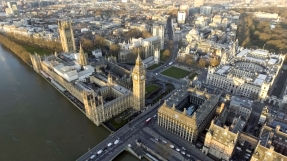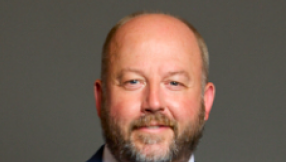As we await an announcement by President Trump regarding his recognition of Jerusalem as the capital of Israel and of the Jewish people, let's consider the Jewish view of Jerusalem.
For 3000 years Jerusalem has been to the Jews as Jesus is to the Christians. Christians may differ on the exact nature of Jesus, but to be a Christian you have to believe in Jesus as the reality in your life.
Just as Christians are bound to Jesus, so the Jewish people are inextricably bound to the city of Jerusalem – Zion. No other city has played such a dominant role in the history, politics, culture, religion, national life and consciousness of a people as has Jerusalem in the life of Jewry and Judaism. Since King David established the city as the capital of the Jewish state 3000 years ago, Jerusalem has continuously served as the symbol and most profound expression of the Jewish people's identity.
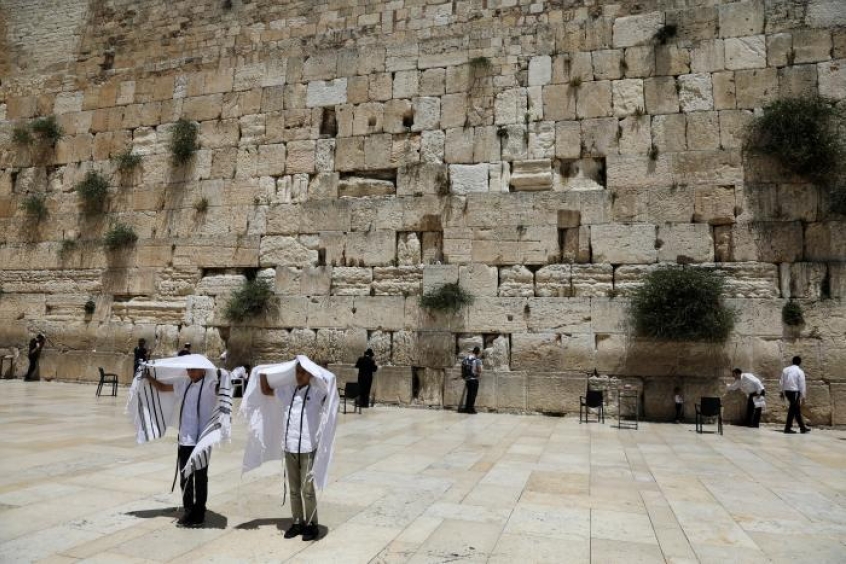
So, already 1000 years before the birth of Jesus to Jewish parents, Jerusalem was regarded not only as the capital of Israel, but as the very heart of the Jewish nation – the pulse which gave Jews their raison d'être, their zest for life. Simply put, Jerusalem is the essence of our being.
2000 years ago in 70 CE, the Romans captured Jerusalem, changed her name and – for maximum humiliation – renamed the country Palastina. This is why there has been confusion with the term 'Palestinian'. The Philistines were neither Arabs nor Semites.
But for observant Jews throughout 3000 years the area was known as Eretz Israel and the capital, albeit for nearly 2000 years in a variety of foreign hands, was always Jerusalem, which King David made his chief city – the city of peace and unity – and where he did all the prior work for the building of the Temple by his son, Solomon, on the very spot where Abraham had been commanded to sacrifice his son, Isaac.
Following on from David's example of 3000 years ago, Jews have always directed their prayers to Jerusalem. Judaism's greatest post-biblical poet, the Spanish scholar, Yehuda Halevi (1075-1140), wrote that 'My heart is in the East, though I am at the ends of the West.' En route by boat to Israel, he wrote his most famous poem: 'Zion, don't you wonder how and where your captives are now ... dreaming your children's return, the song of lute strings ...'
This Davidic theme was taken up by the singer and song-writer Naomi Shemer, who just before the 1967 Six-Day War, wrote Israeli's alternative national anthem, Jerusalem of Gold, incorporating the theme of the lute.
She also incorporated the words of Psalm 137: 'By the rivers of Babylon we sat down and wept when we remembered Zion.... If I forget thee o Jerusalem let my right hand forget her cunning.'
Our major prayers incorporate our plea to G-d to rebuild Jerusalem and restore our presence there.
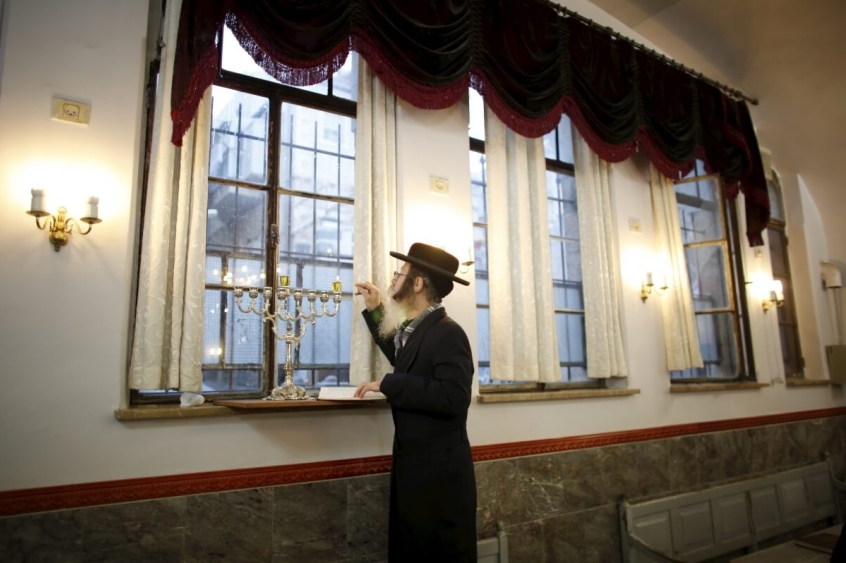
In Grace after meals, we say: 'Have mercy ... on Jerusalem Your city, on Zion the resting place of Your glory, on the monarchy of King David Your anointed, on the great and holy Temple upon which Your name is called... Rebuild Jerusalem, the holy city, soon in our days. Blessed are You G-d who rebuilds Jerusalem in His mercy.'
Jerusalem is mentioned around 700 times in the Bible and not at all in the Koran.
And Jerusalem is home to the most highly regarded Jewish religious seminaries, known as yeshivot, in the world, as well as being the undisputed centre of Jewish scholarly, religious and spiritual life for most of world Jewry.
And at Pesach Jews all over the world intone 'Next Year in Jerusalem', not just as a mantra, but with real feeling.
At Jewish weddings, a glass is shattered in memory of the destruction of Jerusalem. A part of the wallpaper of a home is torn for the same reason and many Jews have a mizrach on their wall, facing east to remind them of Jerusalem. I made one with my daughter then aged around 6, out of dried pulses and seeds. It still adorns our home.
Having given this background, I thought I should interview one of Israel's most respected political scientists, Professor Sam Lehman-Wilzig, of Bar Ilan University, and ask him for his opinion of the American decision to recognise Jerusalem as Israel's capital and to move their Israeli embassy there.
Professor Lehman-Wilzig's well-considered response was typical of that of many Israelis:
'No one can argue with the fact that the Jews have always viewed Jerusalem as their national capital — for the past 3000 years. The major bone of contention today is East Jerusalem — whether its conquest in 1967 constitutes "invasion". Most people who truly want to see a peace treaty, agree that it will include West Jerusalem, the post-1967, massive Jewish neighborhoods in East Jerusalem, but NOT the Arab neighborhoods in East Jerusalem that will constitute the core of Palestine's capital. So Trump's wording should be parsed very exactly to see whether it still enables such a final resolution of the city's limits to be instituted.'
So, in other words, and in contrast to the threats emanating from sections of the Muslims and Christian world, leading Israelis don't think the recognition means very much, as they have always known that Jerusalem is their capital. However, Israelis also acknowledge that some areas of East Jerusalem are today mainly inhabited by Arabs (and are also often no-go areas for Jews) and will therefore constitute the capital of the new Palestinian State when the peace treaty is finalised.
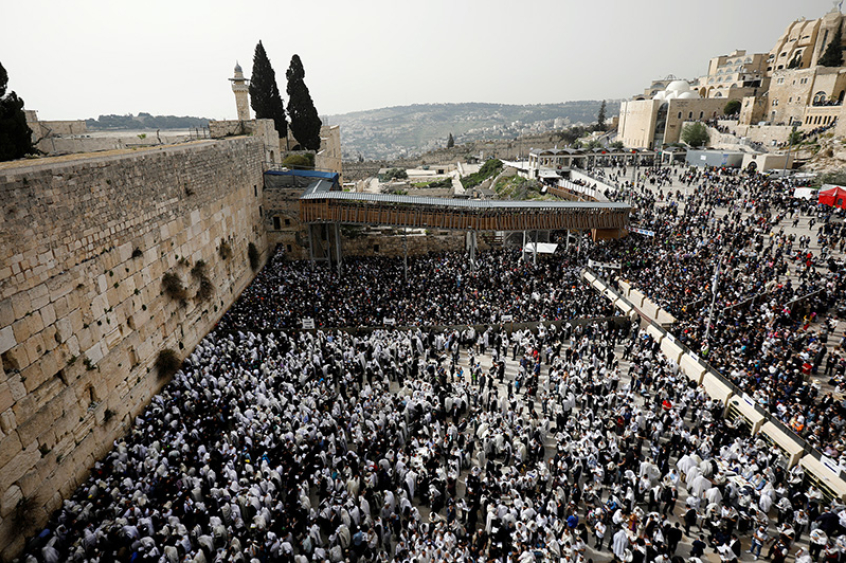
The late Chief Rabbi of Haifa, Shear Yashuv Cohen, was a Jerusalemite by birth, and his birth was duly registered as a 'Palestinian'. Rabbi Cohen was Deputy Mayor of Jerusalem from before its reunification in the Six-Day War of 1967. More recently, he was the State of Israel's international envoy on status of Jerusalem issues. In 2008, Rabbi Cohen was commissioned to write a new Prayer for Jerusalem. This is his view:
'Jerusalem, our great, united and perfect city is not up for division. Even during the Biblical era she was never divided between the 12 tribes. This is because Jerusalem belongs in her entirety to the whole of Klal Yisrael, the entire Jewish people ... and therefore for a Jew to even consider carving her up between Israel and the other nations is simply inconceivable.... Zion is, as you know, the heart of our people and nation, the root of our soul.
'Can a heart be divided? You can't subdivide a heart; you cannot form a partnership in a heart, or slice it in half, thirds, or quarters.... We have absolutely no authority to make any compromises whatsoever in the name of so-called "demography", based on whatever temporary ethnic make-up happens to reign in our Holy City....'
Chief Rabbi Shear Yashuv Cohen was right. Whatever source you peruse, Jerusalem is and always will be the heart of the Jewish people.
However, Professor Lehman-Wilzig is also right. 'Sometimes' he said to me, 'You have to be smart as well as right.'
The smart thing in Judaism is always compromise for peace. In the face of threats over the last 24 hours from Christians and Muslims alike, not to mention from European leaders, the State of Israel will do the right thing.
And maybe – who knows? – this formal recognition of Jerusalem as the capital of the Jewish people, which the US President promised he would do, will lead to the Palestinians having their own country and capital sooner than they had imagined.
Dr Irene Lancaster is a Jewish academic, author and translator who has established university courses on Jewish history, Jewish studies and the Hebrew Bible.











